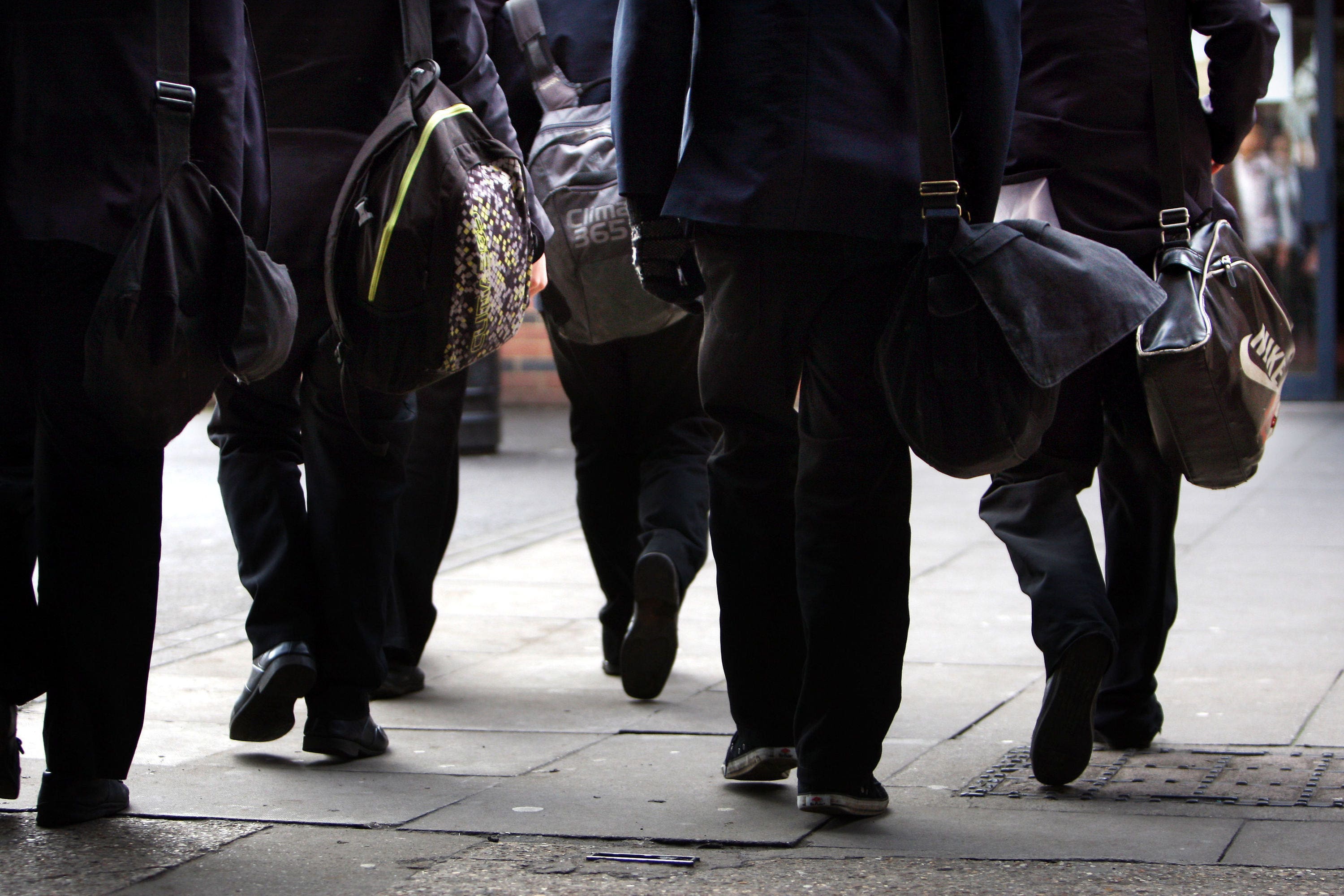One in eight UK pupils say they feel unsafe in school, global study shows
More than a quarter of teenagers in the UK reported being bullied at least a few times a month, a survey has found.

Teenagers in the UK are more likely to feel unsafe in school away from class than their peers around the world, an international study has suggested.
Around one in eight (13%) students polled in the UK reported not feeling safe in areas of the school outside the classroom such as the toilets, cafeteria or hallways, according to a global survey of 15-year-olds published by the Organisation for Economic Co-operation and Development (OECD).
The average across the OECD’s 32 member countries with available data was 10%.
The UK’s score is higher than European countries such as Portugal and Switzerland where only around 5% of teenagers polled said they felt unsafe in school in spaces outside the classroom.
For the low type of violence there is a big difference between the UK and the OECD average
The latest Pisa study also found that more than a quarter (28%) of teenagers in the UK reported being bullied at least a few times a month.
This compared with around a fifth (20%) on average across the 36 OECD countries with available data.
Nearly two in three (64%) of teenagers in the UK reported feeling like they belong at school, which is below the OECD average of 75%, the survey found.
Alfonso Echazarra, co-author of the Pisa 2022 reports, said: “This is important because we see a sense of belonging not only affects the wellbeing of students, it affects the learning of students.”
We need to continue to make sure that we are doing all we can both in terms of what happens in school, but also in that wider social environment for children
Speaking at a launch event in London, Mr Echazarra highlighted that teenagers in the UK were more likely to report witnessing vandalism, fights and threats at school than the OECD average.
He said: “For the low type of violence there is a big difference between the UK and the OECD average.”
Speaking to the press in Westminster on Tuesday, schools minister Damian Hinds said: “Behaviour in schools is obviously paramount, partly for how children feel about themselves and the learning environment they are in.
“But also a calm learning environment is essential for learning and progressing in education. It’s why we have had a lot of attention over the last number of years on behaviour.”
He added: “We need to continue to make sure that we are doing all we can both in terms of what happens in school, but also in that wider social environment for children.”
Bookmark popover
Removed from bookmarks